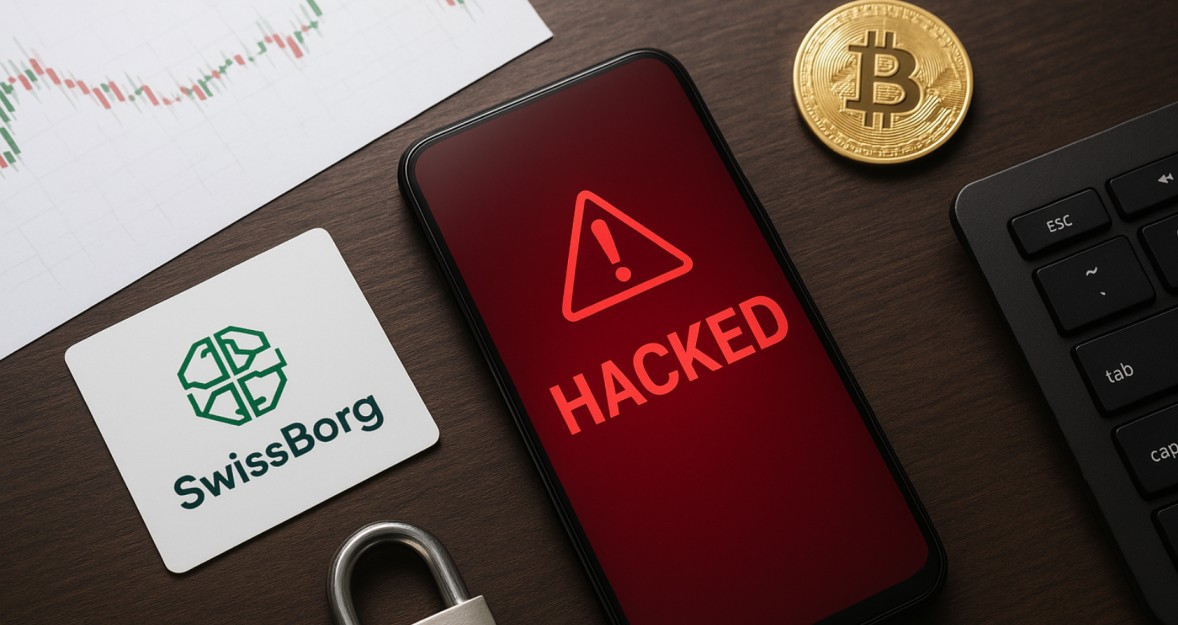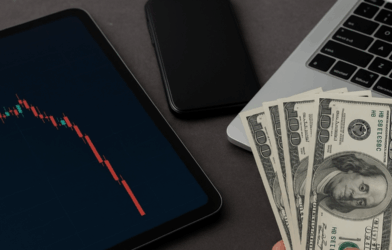Swiss-based cryptocurrency wealth management platform SwissBorg has confirmed it was the target of a major exploit that resulted in the loss of around 192,600 SOL tokens, valued at approximately $41.5 million at the time of the incident. Despite the scale of the attack, the company has reassured its community that all affected users will be fully compensated, with funds being covered from SwissBorg’s own reserves.
How the Exploit Happened
The exploit was not the result of a direct breach of SwissBorg’s core systems, but rather a security compromise at the level of a third-party partner. The vulnerability was traced back to an API integration with Kiln, a staking service provider used for the SOL Earn product. Through the compromised API, attackers gained unauthorized access to wallets associated with SwissBorg’s SOL staking strategy. Once access was obtained, the hackers siphoned out nearly 193,000 SOL in a series of rapid transfers.
Blockchain analysts who tracked the movement of the funds noted that the exploit was carefully coordinated, with the attackers moving quickly to obfuscate the trail of tokens across multiple wallets. This pattern follows a broader trend in crypto exploits, where hackers increasingly target infrastructure partners and external dependencies rather than attempting to penetrate the main platforms directly.
The Scale of Impact
While the dollar figure of $41.5 million is substantial, SwissBorg emphasized that the scope of the impact on its overall ecosystem remains limited. According to the company, the exploit affected fewer than 1% of its total user base and accounted for only about 2% of its total assets under management. All other products and services—including the core SwissBorg application, Bitcoin Earn, Ethereum Earn, and fiat on-ramp/off-ramp services—remain fully functional and secure.
This reassurance was crucial to calming markets and users, especially given that confidence is a fragile commodity in the crypto space. SwissBorg moved quickly to suspend redemptions and deposits related specifically to the SOL Earn product while ensuring that its other offerings continued to operate without disruption.
SwissBorg’s Response
From the moment the incident was detected, SwissBorg took a proactive and user-first approach to crisis management. The company’s CEO, Cyrus Fazel, confirmed that the platform would cover 100% of the affected funds from SwissBorg’s treasury holdings in SOL. This means users will not suffer any direct financial loss from the hack, a decision that sets SwissBorg apart from some other platforms in the industry that have shifted the burden of losses onto customers after exploits.
In addition to promising compensation, SwissBorg has engaged security partners, blockchain forensic experts, and law enforcement agencies to trace the stolen funds. The company is also working with white-hat hackers and its staking partner to strengthen its security architecture and prevent similar incidents from occurring in the future. A full incident report is expected once the investigation concludes, and the company has committed to maintaining transparency throughout the recovery process.
Lessons for the Industry
The SwissBorg exploit highlights a critical and growing issue in crypto: the risks associated with third-party integrations. Even when a platform’s own infrastructure is secure, the use of external APIs and partners introduces potential weak points that attackers can exploit. This attack echoes several other high-profile cases in the industry where external service providers, bridges, and APIs have been the primary vectors for multi-million-dollar losses.
The incident also demonstrates the importance of reserves and treasury management. SwissBorg’s ability to absorb a $41.5 million hit and still guarantee user protection shows the benefits of prudent treasury strategies. It sets a benchmark for how platforms can uphold trust even in the wake of significant financial setbacks.
Finally, the hack reflects the reality that crypto platforms must evolve beyond just securing their own codebase. In today’s interconnected digital finance ecosystem, resilience also depends on vetting, monitoring, and stress-testing all partners and integrations.
Market Reaction
Solana’s price experienced short-term volatility as news of the exploit circulated, though it quickly stabilized as it became clear that the exploit was not a systemic Solana blockchain issue, but rather an integration failure tied to a specific product. SwissBorg’s CHSB token also faced a brief dip amid user concerns but recovered after the compensation pledge was made public. The rapid, transparent response from SwissBorg likely helped prevent a larger sell-off.
What Comes Next
For now, SwissBorg has paused its SOL Earn product until further notice while security upgrades are being implemented. Users can expect compensation in SOL drawn from SwissBorg’s treasury once the technical and legal processes are finalized. The company has promised to release a detailed timeline of the exploit, the recovery measures taken, and the specific security enhancements being rolled out.
The wider crypto industry will also be watching closely, as the SwissBorg incident provides yet another reminder that third-party dependencies are often the weakest links in decentralized finance. Platforms may need to rethink their risk management models, possibly requiring greater transparency and security certifications from partners before integrating their services.
Summary Table
| Aspect | Details |
|---|---|
| Funds Lost | |
| Attack Vector | Compromised API of staking partner Kiln |
| User Impact | <1% of users; ~2% of assets under management |
| Other Services | Unaffected (BTC, ETH, app services remain secure) |
| Response | Full compensation from SwissBorg’s SOL treasury |
| Next Steps | SOL Earn paused, investigation ongoing, security upgrades planned |

SwissBorg’s handling of the exploit may become a case study in crisis management for the crypto sector. While the financial loss is significant, the company’s decision to shield users from harm, maintain operations, and confront the issue transparently could ultimately strengthen its brand reputation. In a landscape where trust is often fragile, SwissBorg has demonstrated that resilience is measured not only by preventing attacks but also by how swiftly and responsibly a platform responds when they occur.











